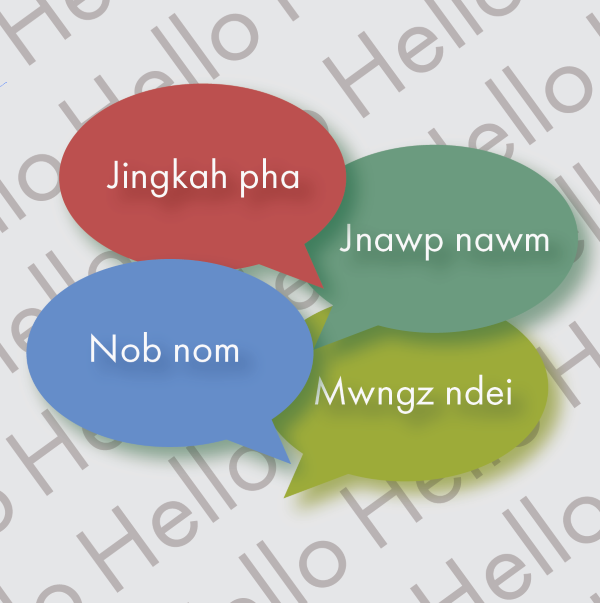 Microsoft and TCAS collaborate on mobile phone keyboards for four Asian minority languages
Microsoft and TCAS collaborate on mobile phone keyboards for four Asian minority languages
Four more Asian languages today have mobile phone predictive keyboards than did last week. Smart phones regularly guess words as users type, making it easier and faster to write texts or emails. But making these ‘predictive keyboards’ takes work and thousands of languages still do not have them. Speakers of these minority languages must type each word, one letter at a time, into their phones, making it faster to use globally dominant languages instead. The comparative ease of using English, Hindi or Chinese partly drives indigenous communities to use their traditional languages less and less.
To help minority communities enjoy the advantages that major languages already have, Nathan Hill, Sam Lam Professor in Chinese Studies and Director of the Trinity Centre for Asian Studies, and Julien Baley, Senior Natural Language Processing Lead at Microsoft, are collaborating to add more languages to Microsoft’s SwiftKey keyboard app. This week they added four new keyboards, for Zhuang, two forms of Wa, and Kuki Thadou.
The Zhuang language, distantly related to Thai, is the official language of China’s 18 million strong Zhuang nationality living in Guanxi and Yunnan providences. The Wa speaking community is divided between China’s Yunnan providence (400,000 people) and Burma’s Wa state (800,000 people). Wa follows different spelling systems in the two countries; both are included in SwiftKey’s latest release. Kuki Thadou is spoken by 229,350 people in adjoining parts of Burma and India.
Mr. Thangcha Chongloi, the Kuki Thadou speaker who worked with Hill and Baley to add a keyboard for his language says, “I downloaded the SwiftKey app and tried Kuki Thadou language and it works perfectly! It's an honour and a prestige to have our remote and unknown language to be able to reach this stage of development.”
Hill and Baley’s collaboration previously led to keyboards for the Atong, Chatino, Galo, Hani, Hrusso, and Paite languages, and they have several more keyboards in development. If you speak a language that does not yet have a mobile phone keyboard on SwiftKey, please get in touch with Professor Hill about building a keyboard for your language.

